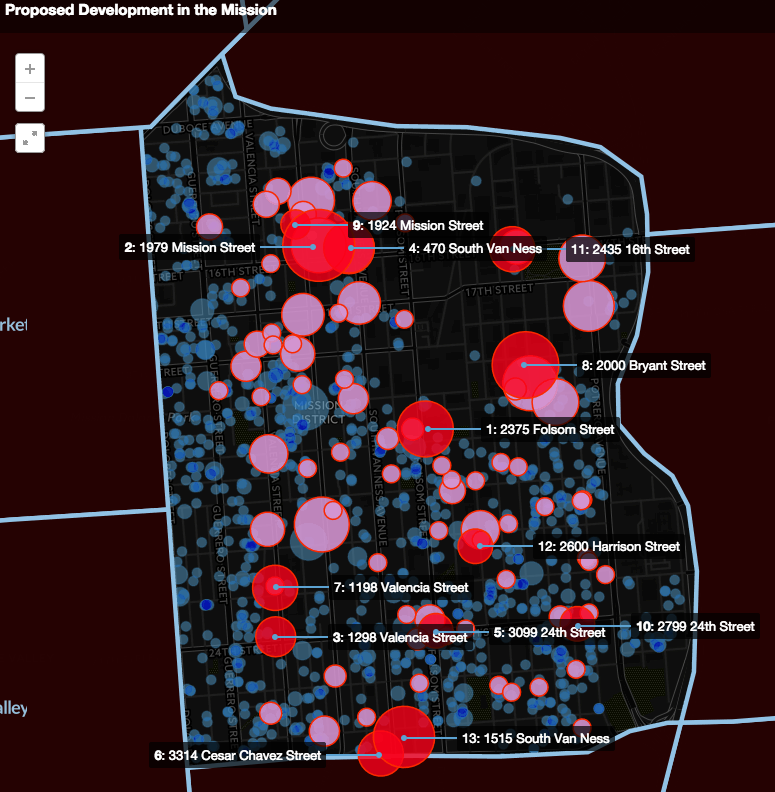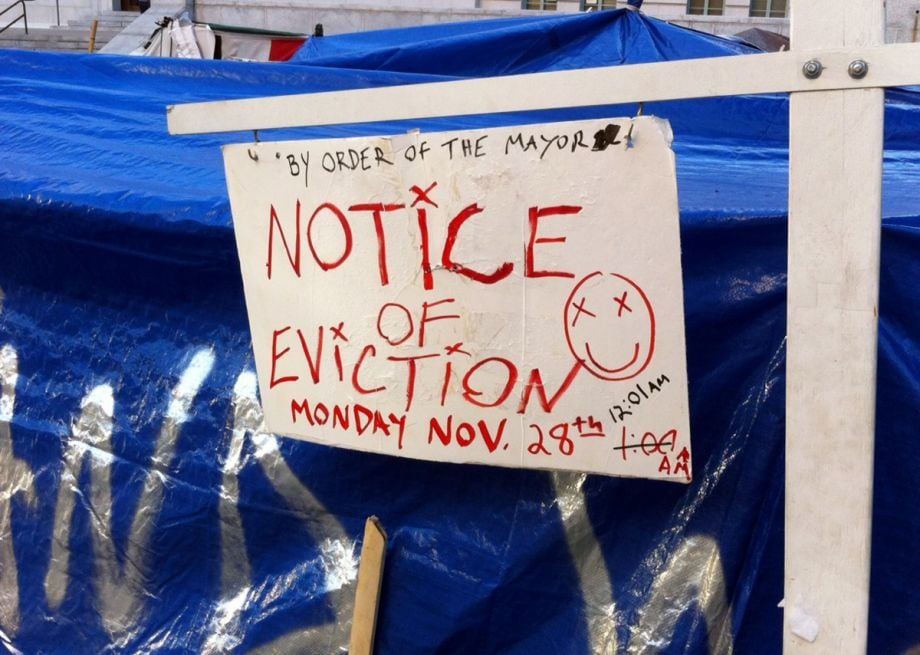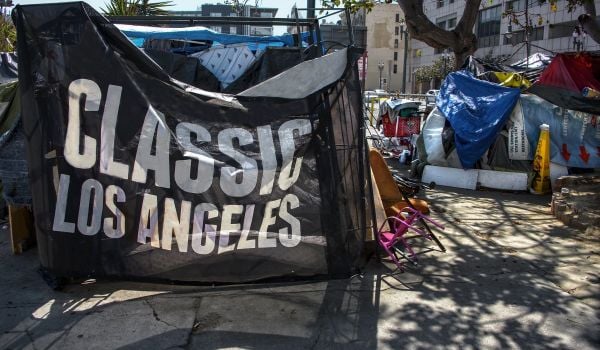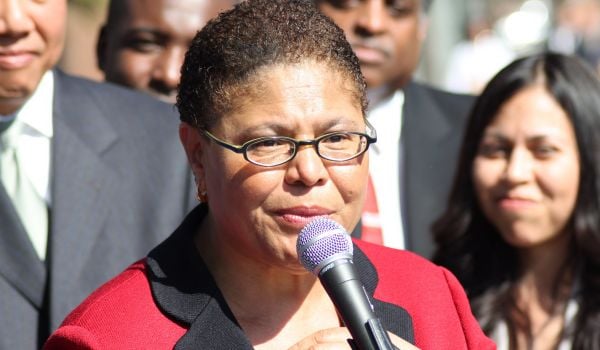As the term ‘gentrification’ loses its power over time through overuse and ambiguity, housing and neighborhood advocates are pointing to the dual crises of displacement and evictions as being the most pressing consequence of real estate speculation. Here is how groups in three cities are responding to place-based housing challenges:
Mass foreclosure nears in Detroit
An unprecedented 62,000 homes are scheduled for a mass foreclosure by Wayne County on March 31. These properties represent $326.4 million in taxes, interest and fees to Detroit. But with families and individuals living in an estimated 37,000 of these houses — 18,000 occupied by owners and the rest by squatters — residents, housing advocates and community organizers are concerned that this action could lead to widespread homelessness, mass migration out of the city, intensified blight, and intensifying land speculation. The mapping and crowdsourcing company Loveland Technologies, profiled by Next City, estimates that this will affect up to 100,000 Detroiters.
The Right to the City Alliance is calling this the largest ever tax foreclosure in a single US city at one time. An emergency assembly organized by the Moratorium Now Coalition took place on March 14 at Christ Church Detroit. Leaders of the coalition say this event should be treated as the same type of state of emergency responsiveness as a natural disaster. They are asking Wayne County Treasurer Rayomond Wojtowicz to halt the plan for the foreclosures, for occupied homes to be taken off foreclosure rolls, and assurance that vacant properties would not be sold to speculators.
They point to the city’s over-aggressive property tax assessments in recent years and last year’s water utility crisis as contributors to residents’ struggle to keep up with payments.
The city has created a back taxes payment plan to ease homeowners’ burdens; Applicants are eligible to enter into payment plans at a six percent interest rate (compared to 18 percent). They can also take as long as five years to pay the overdue taxes, if they are able to put down a 10 percent down payment.
“This is probably a once in a lifetime break,” said Detroit Mayor Mike Duggan in a March 10 press conference.
Despite this option, thousands could still end up on the streets. Some see squatting as preferable alternative to homelessness: “When you are in these situations I encourage any one who is on the streets, and their fingers and toes are hurting from the cold, go into one of those houses standing empty and do what you need to survive,” Detroit resident Rebecca Fritz told Detroit News.
Homes will be auctioned in fall 2015 for $500 or to the highest bidder. Properties may come with back taxes, liens and water bills.
Mission District map visualizes San Francisco’s building boom
The extreme demographic, economic and cultural shifts in San Francisco’s Mission District makes it one of the most hotly contested neighborhoods in the country. A local advocacy group, Anti-Eviction Mapping Project, has just released a new geographic representation of development and evictions. In the map below, red circles represents proposed developments, pink circles represent past developments, and blue circles represent “no-fault” evictions (meaning, a lease was terminated through no fault of the tenant, but because the landlord wished not to renew). The larger the circle in the graphic, the more units that have been or will be affected.

(Credit: Anti-Eviction Mapping Project)
The group has compiled data showing a loss of more than 3,278 rent controlled units in the city from 2007-2014. Counting the nearly 4,978 affordable housing units produced in the same time period, the net affordable housing stock in the city is only up 1,700 units — more than 10,000 units shy of the city’s five-year goal.
Brooklyn organizers have a message of ‘Before It’s Gone, Take It Back’
“Before It’s Gone, Take it Back: Documenting Brooklyn, Fighting Gentrification” (B4G) is an art project launched last year collecting videos, artwork and selfies documenting gentrification in Brooklyn neighborhoods. A project of the grassroots organization Equality for Flatbush, B4G is currently hosting forums throughout Brooklyn this spring discussing their six-point ‘This is a No-Eviction Zone’ campaign and providing legal, housing and community organizing resources. On March 17, the Brooklyn Pride Center held an art workshop for the borough’s LGBTQ residents. Future meetings are planned for the communities of East New York on March 29 and Flatbush on April 18.
The Equity Factor is made possible with the support of the Surdna Foundation.

Alexis Stephens was Next City’s 2014-2015 equitable cities fellow. She’s written about housing, pop culture, global music subcultures, and more for publications like Shelterforce, Rolling Stone, SPIN, and MTV Iggy. She has a B.A. in urban studies from Barnard College and an M.S. in historic preservation from the University of Pennsylvania.

















